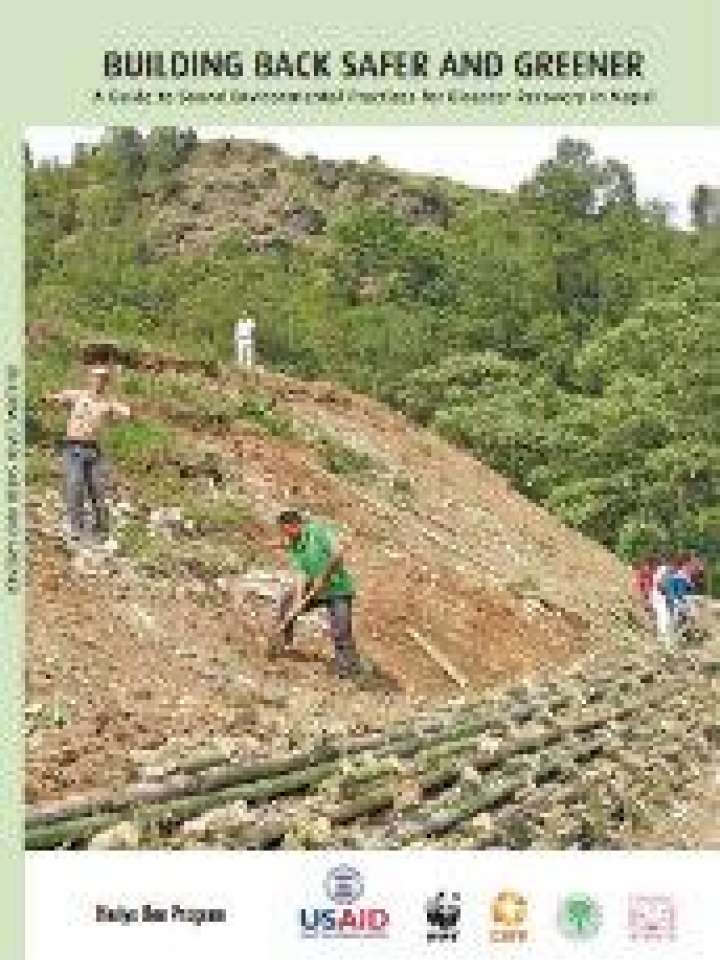Building back safer and greener: A guide to sound environmental practices for disaster recovery in Nepal
This guide outlines ways in which adverse environmental impacts can be avoided after disasters, and good practices can be promoted. It covers sectors including settlements and land use planning; building construction; waste management; energy; infrastructure; water, sanitation and hygiene; agriculture and livelihoods; and education. It highlights the importance of flood risk management, landslide prevention and treatment, and management of forests after disasters.
Since gender equality and social inclusion (GESI) are critical during recovery and reconstruction, and it is important to take climate change into account during the process to allow for future climate extremes, these two issues are covered as cross-cutting issues in each chapter. Finally, the guide outlines key players in Nepal disasters, ways to work with others to promote safer and greener recovery, and the importance of training and outreach in promoting green recovery and reconstruction.
This guide is the culmination of the WWF Nepal Hariyo Ban Program’s work on green recovery during 2014-2016.
Explore further
